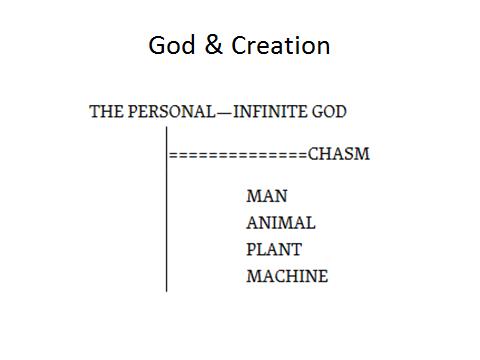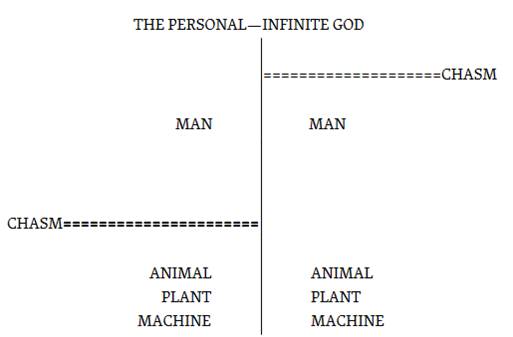The question of Biblical literacy came up in a recent Facebook conversation, and it is a concern for many of us here. I wonder if we are not a victim of our own success, in a way. In the earlier years of the RM, and in the first half of the last century, many Americans were well-read in the Scriptures. Theological liberalism began to attack the Bible, but many Christians doubled-down on the Bible during that time, and Bible teaching demonstrated to be very important, by its frequency: Sunday School, Biblical preaching, Sunday night, Wednesday night, etc.
The RM took the Bible seriously. That is why I am no longer a Lutheran. I was raised in the liberal LCA synod, was confirmed, but was introduced to the Bible by other high school students from First Christian Church in Council Bluffs. These students told me what the Bible said about being saved, and how. That’s something I never heard in the Lutheran church.
I became a Christian there, and without knowing it, a member of the RM (Restoration Movement). I might add that it was High School students, and their college friends, who recruited me to attend Manhattan Christian College.
What impressed me, at age 15, was that the Bible was so important, and this church took it seriously. I wonder if that is so much the case today. We have taken the Bible seriously for so long, that we assume we are still doing it, without remembering that each new generation must be taught to have that same concern.
Don Carson, in speaking of the Gospel, says that though a generation or two take the Gospel very seriously, later generations begin to ASSUME the Gospel. So the Gospel is less proclaimed, but assumed, as other things are done: arts, music, counselling, social work, other ministries, etc., etc.
So I wonder if we, sometime in the 70s or 80s, began to do “other things,” and tacitly set aside the Bible. In the 1800s, philosophy is said to have taken “a hermeneutical turn” which has changed the course of philosophy from that time to the present.
In evangelical churches, not only the RM, I think we have taken a “relationship turn,” in our approach to all things, including Deity and Man. This is marked by a move away from propositional Revelation to feeling, from Word to deed, from foundations to structure. Relationships became the main thing–and it was around that time that we heard that “Christianity isn’t a religion, it’s a relationship.” Interestingly, my liberal Lutheran church national youth group was called “Lutheran Youth Encounter.”
Some call it Neo-orthodoxy, a move to separate “fact” from “truth,” but I’ll stop digressing.
In the rush to keep people coming back to church, there has been a subtle change to treat disciples of Christ as the customers of Christ, so that people who profess Christ as Lord must be constantly wooed back to Him. We want them to like us. My take on the entertainment-as-worship phenomena is that is not so much that non-Christians won’t come if they’re not entertained, but it takes a circus to keep people, who are supposedly Christians, coming back. A man or woman who understands the seriousness of their lost-ness will be put off by levity, not drawn to it. How can a person who truly understands their guilt before God, be beholden to silliness in preaching? Is it the Word of God and His Spirit that draws a man to Christ or the band?
It takes a special kind of immaturity to be captive to entertainment, and that especially so when the consequences of falling short are eternal.
Staying with this consumer motif for a moment, we can see then that churches simply aren’t selling what people are buying. If there are faithful, Bible-preaching empty churches on Sunday nights and Wednesday nights, it could mean that there is an oversupply of Bible. That overstock is not fault of the church. There is, indeed, a famine for the Word of God, but no felt hunger among the starving (Amos 8:11). People need the Bible, but aren’t aware of that need. Replacing what is needed, the Word of God, with other business will save no one.
If we are trying to gather a shrinking market share of people who want Bible, and entertainment works, then that will be what is done; I think that this has been the trend for over 30 years now. If “Christianity lite” edges out the gravitas of the Faith, Sunday after Sunday, there will be few left who really do hunger for the Bible.
When I say “doing other things,” I’d like to offer some examples, and ask some questions:
- How often does preaching get set aside for other things on Sunday mornings? Special services, reports from missionaries (which do need the time, but need a longer time), skits from the youth group, all are used to replace preaching.
- I have seen advertised, from all sorts of churches, “An Evening of Praise” or “An Evening of Worship.” Are you aware of the success of anything like, “An evening of preaching” or “A night of teaching,” with back-to-back Scriptural exposition? Why would this not gather as large a group of people as would something involving music and drama?
- Has our preaching shifted from Scripture to needs based subjects? I firmly believe in the need to address needs, but from what I can tell, much preaching is no longer exegeting the Bible and applying it to life as the text brings them up, but first looking at problems faced by many and then finding texts to address those problems. This, though, tends to fragment our understand of Scripture, and makes the Bible more of a go-to book of advice.
- If you preach, in sermon planning do you start with Scripture, or your audience? Why?
- I assume that if you are reading this that you are a preacher or an elder. How many times have you read the Bible through in your life? Have you done so?
- Are students graduating from our colleges and seminaries Biblically literate? Have they read the Bible through? In what things are they literate?
- How soon after becoming a Christian did you read the Bible?
- If you were to start publically reading the Bible each Sunday (1 Timothy 4:13), and assuming you followed a plan or lectionary so you don’t just cycle through favourite texts, would your church push-back, and say that’s too much Scripture, or that it takes too much time?
- Can you imagine a worship service with no preaching, but just worship, offering, music and the Lord’s Supper? Can you imagine a worship service with only the Lord’s supper, offering, and preaching, but with no music? Which of these two are harder to accept?
I can think of others, but the few I listed above give some hint as to the kind of trouble we have in our churches now.
I do believe that the average preacher, elder, deacon, and church member knows much less of the Bible, is reading it less, and comprehends much less of the Biblical worldview than even 30 or 40 years ago.
Speaking now to the older preachers: Do you remember in the 70s, the Baker Book House catalogue that came out two or three times annually? Almost all the books sold in that catalogue were reference works about the Bible or theology. Even the early Christian Book Distributors catalogues leaned heavily upon doctrine, theology, Biblical studies, commentaries and Biblical languages. Now consider the top-selling books today: Christian fiction, relationship repair, and Bible study guides that state the painfully obvious that could be gleaned by a simple reading of the Bible (Lucado and Warren come to mind). Among Christian bestsellers are few books that actually enable one to understand Scripture better. We are awash in books, but know the Bible less.
If the pool of people who really respond to the preaching of the Bible is small, and shrinking, it is our duty to cultivate and grow that pool.
I think that elders and preachers need to encourage the reading of Scripture, in their entirety, more. This means that Christians ought to expect to read the Bible through, repeatedly, for the rest of their lives. Preachers and teachers must be reading more than what is necessary for the next lesson or sermon.
I also think that preachers and elders ought to model, and encourage, the “plucking out the eye” and “cutting off the hand” of much of popular culture. It simply is not that important to be up on every song, movie, play, novel, trend or sporting event. We only have so many hours in our lives, and we need to get past the entitlement mentality when it comes to our entertainment.
So, are we doing other things, or doing what matters?








